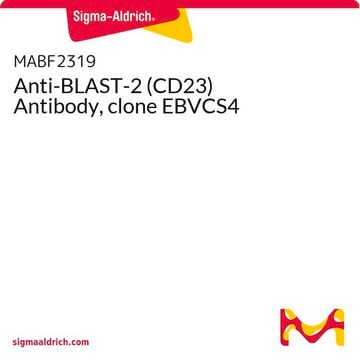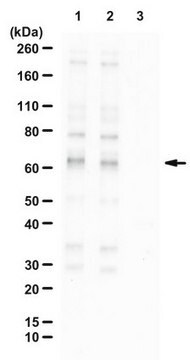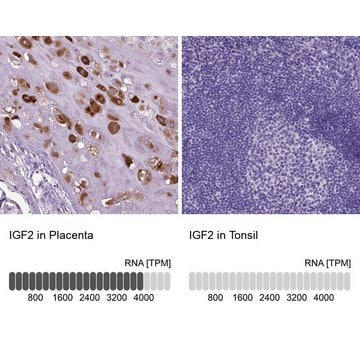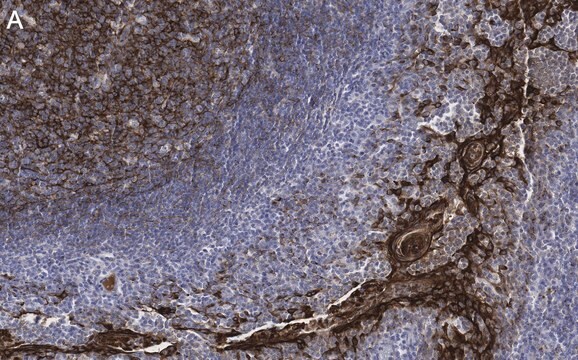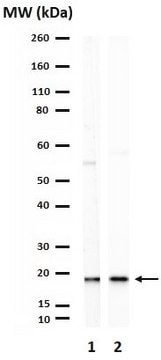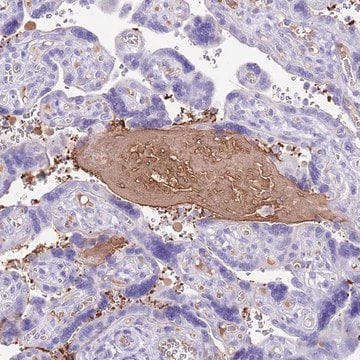MABS460-I
Anti-FGF23 Antibody, clone 278-2
About This Item
Productos recomendados
biological source
human
Quality Level
conjugate
unconjugated
antibody form
purified antibody
antibody product type
primary antibodies
clone
278-2, monoclonal
mol wt
calculated mol wt 27.95 kDa
observed mol wt ~37 kDa
purified by
using protein G
species reactivity
human
packaging
antibody small pack of 100 μg
technique(s)
flow cytometry: suitable
western blot: suitable
isotype
IgG1κ
epitope sequence
Unknown
Protein ID accession no.
UniProt accession no.
shipped in
2-8°C
target post-translational modification
unmodified
Gene Information
human ... fgf23> FGF23(8074)
Categorías relacionadas
General description
Specificity
Immunogen
application
Evaluated by Western Blotting in Human brain tissue lysates.
Western Blotting Analysis: A 1:1,000 dilution of this antibody detected FGF23 in Human brain tissue lysates.
Tested Applications:
Flow Cytometry Analysis (FC): 1 μg of this antibody detected Fibroblast growth factor 23 (FGF23) in one million Jurkat cells pretreated with Brefeldin A (1 μg/mL 4 h).
Physical form
Storage and Stability
Other Notes
Disclaimer
¿No encuentra el producto adecuado?
Pruebe nuestro Herramienta de selección de productos.
Storage Class
12 - Non Combustible Liquids
wgk_germany
WGK 1
flash_point_f
Not applicable
flash_point_c
Not applicable
Certificados de análisis (COA)
Busque Certificados de análisis (COA) introduciendo el número de lote del producto. Los números de lote se encuentran en la etiqueta del producto después de las palabras «Lot» o «Batch»
¿Ya tiene este producto?
Encuentre la documentación para los productos que ha comprado recientemente en la Biblioteca de documentos.
Nuestro equipo de científicos tiene experiencia en todas las áreas de investigación: Ciencias de la vida, Ciencia de los materiales, Síntesis química, Cromatografía, Analítica y muchas otras.
Póngase en contacto con el Servicio técnico